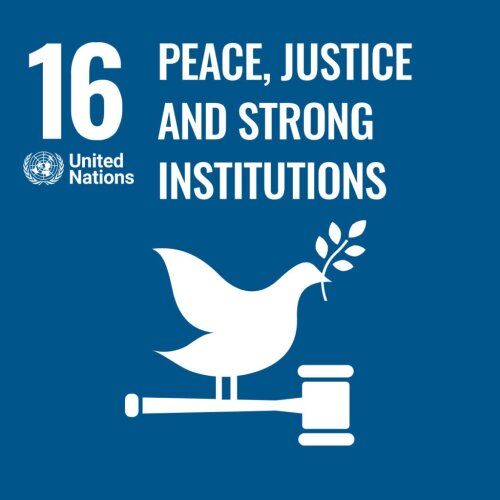Best Civil Rights Lawyers in Trinidad and Tobago
Share your needs with us, get contacted by law firms.
Free. Takes 2 min.
Or refine your search by selecting a city:
List of the best lawyers in Trinidad and Tobago
About Civil Rights Law in Trinidad and Tobago:
Civil rights in Trinidad and Tobago are protected under the Constitution of the Republic of Trinidad and Tobago. These rights include freedom of speech, freedom of religion, the right to a fair trial, the right to privacy, and protection against discrimination. Individuals who believe their civil rights have been violated may seek legal recourse through the courts.
Why You May Need a Lawyer:
You may need a lawyer in Trinidad and Tobago to help you navigate civil rights issues such as discrimination, harassment, or violations of your freedom of speech. A lawyer can assist you in understanding your rights, filing a complaint or lawsuit, and representing you in court if necessary.
Local Laws Overview:
In Trinidad and Tobago, the Constitution is the supreme law of the land and guarantees the protection of civil rights. The Equal Opportunity Act prohibits discrimination on the grounds of race, ethnicity, religion, or gender. The Tobago House of Assembly Act recognizes the autonomy of Tobago and grants certain rights to Tobagonians.
Frequently Asked Questions:
1. What are my civil rights in Trinidad and Tobago?
Civil rights in Trinidad and Tobago include the right to freedom of speech, religion, a fair trial, privacy, and protection against discrimination.
2. How can I file a complaint if my civil rights have been violated?
You can file a complaint with the Equal Opportunity Commission or seek legal advice from a lawyer specializing in civil rights law.
3. Can I be discriminated against based on my race or religion in Trinidad and Tobago?
No, discrimination based on race, ethnicity, religion, or gender is prohibited under the Equal Opportunity Act.
4. What is the process for resolving a civil rights dispute in Trinidad and Tobago?
You may first try to resolve the dispute through mediation or conciliation. If unsuccessful, you can file a complaint with the Equal Opportunity Commission or seek legal assistance.
5. Are there any governmental bodies that can assist with civil rights issues in Trinidad and Tobago?
Yes, the Equal Opportunity Commission and the Office of the Ombudsman are two governmental bodies that can assist with civil rights issues.
6. How long do I have to file a complaint if my civil rights have been violated?
It is advisable to file a complaint as soon as possible after the violation occurs. There may be time limits for filing complaints under certain laws.
7. Can I represent myself in a civil rights case in Trinidad and Tobago?
While it is possible to represent yourself, it is recommended to seek legal advice from an experienced civil rights lawyer to ensure your rights are properly protected.
8. What remedies are available if my civil rights have been violated?
Remedies for civil rights violations in Trinidad and Tobago may include compensation, injunctive relief, or a public apology, depending on the nature of the violation.
9. What types of civil rights cases do lawyers in Trinidad and Tobago typically handle?
Lawyers in Trinidad and Tobago may handle cases involving discrimination, harassment, freedom of speech, privacy rights, and other civil rights issues.
10. How much does it cost to hire a lawyer for a civil rights case in Trinidad and Tobago?
The cost of hiring a lawyer for a civil rights case in Trinidad and Tobago may vary depending on the complexity of the case and the lawyer's experience. Some lawyers may offer a free initial consultation to discuss your case.
Additional Resources:
For additional resources and information on civil rights in Trinidad and Tobago, you can visit the Equal Opportunity Commission's website or contact the Law Association of Trinidad and Tobago for a referral to a civil rights lawyer.
Next Steps:
If you believe your civil rights have been violated or if you need legal assistance in Trinidad and Tobago, it is important to seek advice from a qualified lawyer specializing in civil rights law. You can schedule a consultation to discuss your case and determine the best course of action to protect your rights.
Lawzana helps you find the best lawyers and law firms in Trinidad and Tobago through a curated and pre-screened list of qualified legal professionals. Our platform offers rankings and detailed profiles of attorneys and law firms, allowing you to compare based on practice areas, including Civil Rights, experience, and client feedback.
Each profile includes a description of the firm's areas of practice, client reviews, team members and partners, year of establishment, spoken languages, office locations, contact information, social media presence, and any published articles or resources. Most firms on our platform speak English and are experienced in both local and international legal matters.
Get a quote from top-rated law firms in Trinidad and Tobago — quickly, securely, and without unnecessary hassle.
Disclaimer:
The information provided on this page is for general informational purposes only and does not constitute legal advice. While we strive to ensure the accuracy and relevance of the content, legal information may change over time, and interpretations of the law can vary. You should always consult with a qualified legal professional for advice specific to your situation.
We disclaim all liability for actions taken or not taken based on the content of this page. If you believe any information is incorrect or outdated, please contact us, and we will review and update it where appropriate.
Browse civil rights law firms by city in Trinidad and Tobago
Refine your search by selecting a city.











